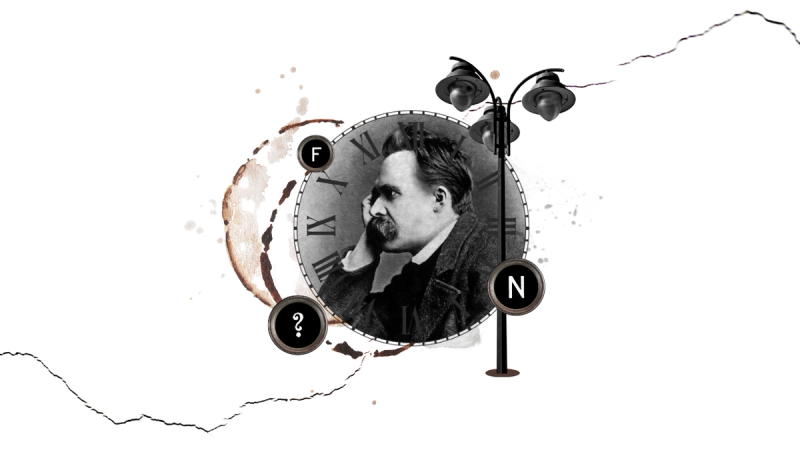Earlier this year, Sola partnered with Holy Cross Episcopal Church and the Diocese of Central Florida to host a conference near Orlando called Binding the Broken: How Jesus Ministers Grace and Truth to Sinners and Sufferers.
We're releasing recordings of the main talks on our YouTube channel over the summer. The first talk from Mike Horton, "A Sympathetic High Priest," just launched a few days ago. It's rich, honest, and so encouraging—please do yourself a favor and check it out. You can watch on YouTube or read the transcript here at Modern Reformation.
In his talk, Mike interacts with an extended passage from one of the works of perhaps the most influential thinker behind contemporary (post-)modern thought and culture: nineteenth-century German philosopher Friedrich Nietzsche.
Nietzsche's ideas and his influence on modern secular culture have come under lots of well-deserved criticism from Christians, especially his contribution to our flattened, fractured notion of the self and our contemporary obsession with attempting to invent our own identity and meaning. Nietzsche's thought can also be helpful in the right hands, however: like a stiff, cold breeze that wakes you up and makes you more sensitive to the dangerous storm brewing that you hadn't noticed before.
For those of us who often sense that modern culture is becoming quite stormy, it will benefit us to learn more about this important source of our current philosophical and cultural climate. In the process, hopefully we'll become a little better at paying attention to the weather. And most importantly, we'll be encouraged to place our trust only in the living God whose chariots ride upon—and soar above—every thundering cloud.
“Demolition Man: Nietzsche for the Christian” by Carl R. Trueman
Nietzsche was a fierce opponent of Christianity and influential in many ways more or less catastrophic for the flourishing of truth, goodness, and beauty. In this essay, Trueman asks the obvious question, "Why should Christians read Nietzsche?" And then he skillfully answers the question with humility and boldness.
“It’s the End of the World as We Know It” by Carl R. Trueman
In this (justly) alarming essay, Trueman asks Christians to wrestle with the truth that Nietzsche was willing to face head on: in a culture without God, everything eventually collapses because there's nothing beyond itself to give it meaning. Trueman offers troubling signs of this collapse everywhere, but ends with three encouragements for how Christians can respond with grace, truth, and hope in a culture increasingly desperate for all three.
“Secular Spirituality: A Brief History” by Michael Horton
In this fascinating, wide-ranging overview of secularism and its rocky relationship to all things divine, Horton brings us to a perhaps startling conclusion: "The West has lost its religion, if we are talking about Christianity, but it is as spiritual as ever—beliefs, assumptions, and practices that previous generations would have regarded as 'pagan superstition' are thriving in the desert of late modernity."
“Peculiar Truth: Postmodern Preaching” by William H. Willimon
The late, great preacher Will Willimon finds in the cynicism of Nietzsche (whom he styles "father of all things post-modern") more than a kernel of truth that contemporary Christian preachers and teachers should learn from: "What if truth was not detached, objective, free-standing, unconditional, and everything else that modern, Western folk have been taught to think of it?" Willimon asks. "What if truth were more personal, relative, intuitional, corporeal, and personified?" But Willimon encourages us not to find in this acknowledgement of the peculiar context of all truth a basis for cynicism or relativism. Rather, Willimon says, as disciple-makers we should point others to the only truth that is both capital T and lowercase t in the very same peculiar person: "a crucified and risen Jew named Jesus."
“Christ and Humanity” by Michael Horton
Horton here offers a bracing reminder that all of us modern Western Christians are far more children of the Enlightenment than we like to believe. Horton calls us back to the biblical truth of the good news of Christ the true man who must ground all our convictions about God, the world, and our place in it.





